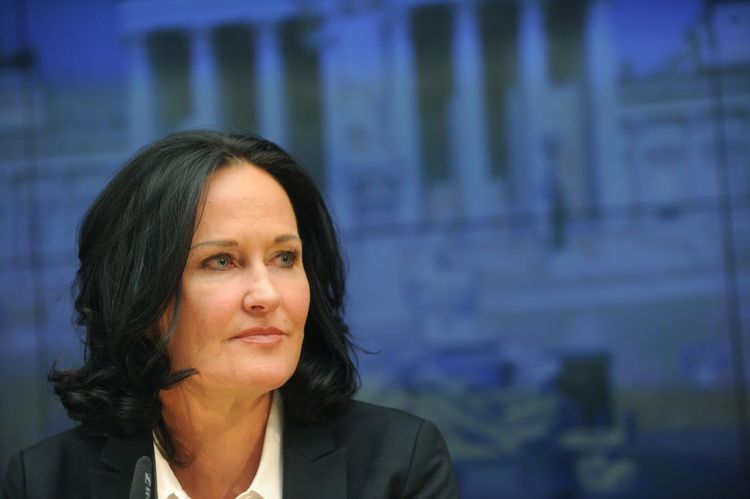
Hate speech targeting Eva Glawischnig could have worldwide consequences for Facebook.
Hate speech targeting Eva Glawischnig, the former head of the Austrian Green Party, could force Facebook to actively search for such content and delete it worldwide in the future.
Back in 2016, the Greens and Glawischnig filed a lawsuit against the social media platform resulting in a temporary injunction requiring Facebook to ensure that the insulting post written about Glawischnig was blocked across the globe. The post referred to the former parliamentary floor leader for the Greens, who resigned as party head in May 2017, as a "corrupt oaf" and "wretched traitor to her people."
Several legal snags have arisen from the case. The first is whether Facebook must also block other posts that are word-for-word identical and those that have the same meaning, but which have been reworded. The second is whether such posts must only be deleted in Austria or all over the world. And third, it is unclear whether hate speech must first be reported to Facebook or whether the social media platform must pro-actively search for such posts itself. The case ended up before Austria's Supreme Court of Justice, which has now referred it onward to the European Court of Justice (ECJ), the European Union's highest court.
Filter System
The ECJ's ruling could put Facebook under significant pressure globally. Were the court to find that Facebook was responsible for finding posts of similar meaning – hate speech that has merely been reworded – the social media platform would be forced to invest considerable resources. Another question is whether such posts would have to be deleted around the world, or only in the individual member state in question.
The appellate court had ordered Facebook to remove posts that were identical to the offending hate speech in addition to posts that the Green Party informed Facebook about. But the court declined to include reworded posts with a similar meaning in its ruling. It did, however, refer to "the use of technical tools such as an automated filter system."
Politician "Rightly" Demanded Injunction
In its referral ruling released on Thursday, the Austrian Supreme Court of Justice found that Glawischnig "rightly" demanded an injunction against the spread of the hate speech that initially triggered the case. But the court noted that the question regarding an obligatory filtering system "cannot be clearly answered on the basis of existing ECJ case law."
The EU directive on electronic commerce prevents member states from imposing "obligations of a general nature" when it comes to monitoring sent or saved information, or when it comes to actively searching for legal violations. Member states may, however, demand that service providers "apply duties of care" to discover and prevent certain kinds of legal violations. The court referred the case to the ECJ to clarify this apparent contradiction.
ECJ Ruling Could Take a While
Maria Windhager, the lawyer representing Eva Glawischnig (who also, for the sake of full disclosure, represents DER STANDARD on media law issues), welcomed the Austrian high court's decision "because relevant case law pursuant to social network providers is lacking." Still, she said, referring the case to the ECJ means "an extensive delay to the trial," adding that it could take up to a year and a half before the European court rules in the case. Facebook and its legal representative Wolf Theiss had not responded to a request for comment by the time of publication.
Global Consequences
The ECJ ruling could also have consequences for Germany's "Act to Improve Enforcement of the Law in Social Networks," or NetzDG, which just went into effect on Jan. 1. The law requires providers of social media platforms to process reports of hate speech within 24 hours. Such posts, however, are only blocked in Germany and remain accessible in Austria.
In an interview with DER STANDARD, national Green Party spokesman Werner Kogler called Facebook "the largest platform for hate in the world." He added that the Greens want to "forge ahead on behalf of those who are not in a position to do so." It is, Kogler said, "a contribution to general welfare when legal certainty exists in this area." The Greens are particularly dedicated to the fight against "radically abhorrent" posts about women who are public figures. Regarding the payment of legal fees, Kogler said the party can surely afford to wage "individual campaigns," but he added that it might also look to crowdfunding as a possible source for financing those efforts. (Fabian Schmid, translated by Charles Hawley, 11.1.2018)